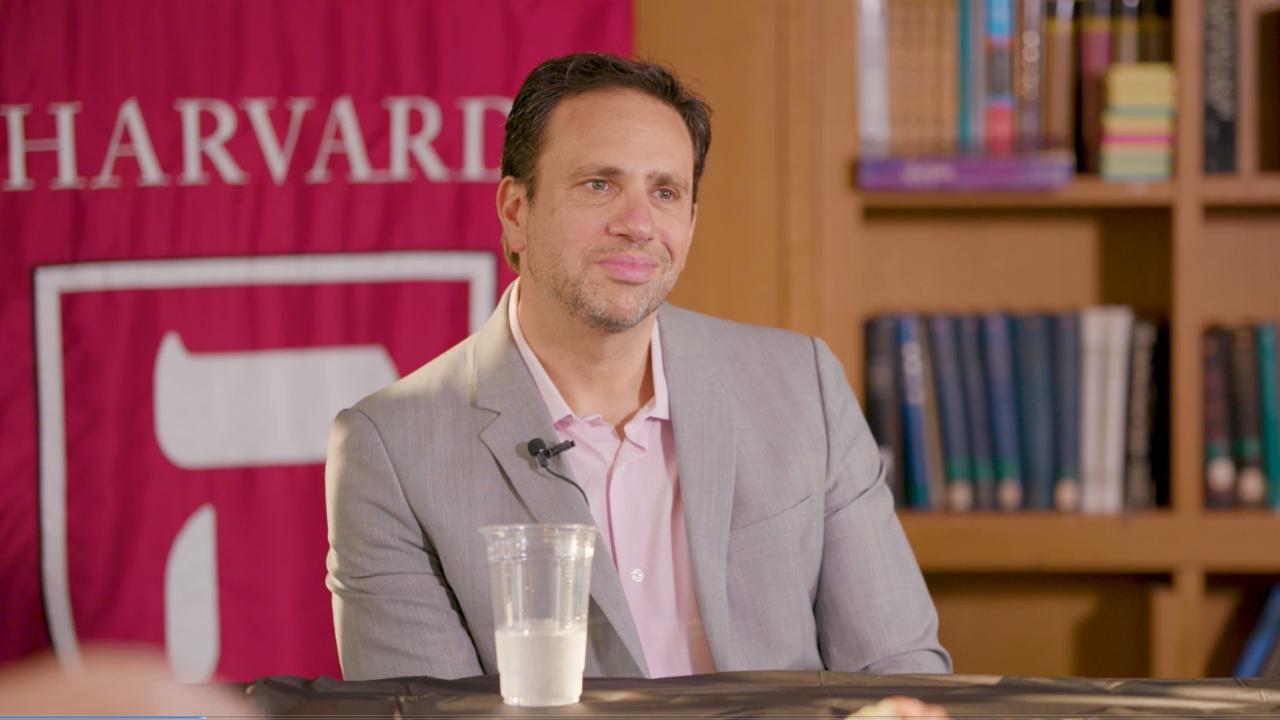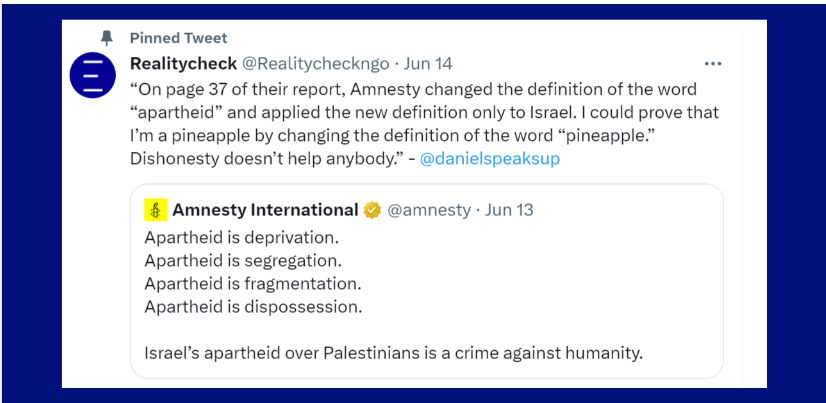Amnesty International recently reiterated a claim from their 2022 research study that Israel is an apartheid state. (Below is their Tweet under our response.)
Fortunately, earlier this Spring we had the opportunity to prepare the students of at least one campus in advance: Harvard. The students we engaged with were greatly impacted by our efforts, expressing that the insights we provided were novel and distinct from any information they had received from other organizations.
How did we do it?
One irreplaceable tool is that we are a credible research organization. Amnesty International enjoys such a reputation (albeit undeservedly) and it is therefore simply not possible to compete at that level without also cultivating the same credibility.
I explained to the students that the way Amnesty “proved” their claim of apartheid was by literally changing the definition of the word, which they did on page 37 of their report. I added (somewhat jokingly) that in this manner I could “prove” literally anything: for example I could prove that I’m a pineapple, simply by changing the definition of the word.
Amnesty’s new definition of apartheid is so broad that if you applied it universally, there is literally no country on Earth that would escape it. But of course Amnesty did not apply their new, made-up definition universally: they applied it only to Israel, a double standard against the Jewish state which technically fits the internationally accepted “IHRA” definition of antisemitism. And for good reason: laws that apply to only one specific group have long been the very basis of racism itself.

Having established our own credibility, and also having critiqued Amnesty where it really hurts (their core academic methodology), only then did we go on to describe Israel itself. To that end, I shared a story of the time I took part in a rather hostile debate on live South African television: when confronted with the apartheid claim I explained, “I wouldn’t presume to tell a South African audience what apartheid is, after all, who knows that painful memory better than you? But I do know something about Israel: a country in which Palestinians, Muslims and Arabs serve as Members of Knesset, Supreme Court Justices, enough doctors and lawyers to make even a Jewish mother proud, actors and academics, musicians and athletes, police and military officers: in short, everything that human beings do. So I would like to invite your audience to ask themselves this one question: does what I just described sound like “apartheid” as you personally remember it?”
The TV host was at a loss for words.
(It’s also noteworthy that the Guardian recently revealed in a shocking exposé that Amnesty has, “a culture of white privilege with incidents of overt racism including senior staff using the N-word.”)
The truth is, Israel, for all its faults and imperfections, is simply light years from the internationally accepted definition of apartheid, as stated in the “Rome Statute,” which is precisely why Amnesty invented a new definition of its own. By speaking to students in our capacity as a credible, research-based organization, and by addressing our discussion directly to Amnesty’s academic credibility, we were able to reach the students “where they are,” and to leave them with powerful tools that became urgently and directly relevant to campus life just weeks later.
Our goal is to do much, much more of this: more research, more credibility, more campuses. You may remember from our last email the impact we’re having in the United States Senate as well as the local and national Canadian legislatures. The equation is simple: the more we do, the more impact we have in the places where our voice is most needed.
If you’re one of our supporters, thank you so very much for making this work possible. And if you’re new here, please consider helping to make our growth possible with a tax deductible donation by clicking HERE.


